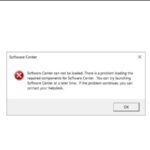Google CRM Free: Best Alternatives & How to Choose the Right Solution
In the dynamic world of business, managing customer relationships effectively is paramount to success. A robust Customer Relationship Management (CRM) system can be your secret weapon, empowering you to streamline processes, nurture leads, and cultivate lasting customer loyalty. While Google offers several business tools, it doesn’t have a dedicated free CRM solution. However, there are numerous excellent alternatives available, each catering to specific needs and budgets.
Why Choose a Free CRM?
- Cost-effectiveness: Free CRMs are a fantastic option for startups, small businesses, and those on a tight budget. They eliminate the initial financial barrier, allowing you to test the waters and evaluate the impact of CRM on your operations.
- Simplicity and Ease of Use: Many free CRMs are designed with user-friendliness in mind. They often have intuitive interfaces and streamlined features, making them easy to learn and adopt.
- Accessibility: Free CRMs are readily accessible, eliminating the need for complex installations or software downloads. You can often access them through web browsers or mobile apps.
- Basic Functionality: While free CRMs may lack the advanced features of paid counterparts, they provide core functionalities such as contact management, lead tracking, and basic reporting.
Best Google CRM Free Alternatives
Here are some of the most popular and highly-regarded free CRM alternatives that can seamlessly integrate with Google’s ecosystem:
1. HubSpot CRM Free
- Strengths: HubSpot CRM Free offers a generous free plan with a wide range of features, including contact management, email marketing, and basic automation. It integrates seamlessly with Google Workspace, allowing you to connect your email, calendar, and contacts.
- Key Features:
- Unlimited contacts and companies
- Email tracking and notifications
- Basic reporting and analytics
- Live chat and forms
- Deal pipeline management
- Pros: User-friendly interface, extensive integrations, powerful automation tools.
- Cons: Limited advanced reporting, fewer features compared to paid plans.
2. Zoho CRM Free
- Strengths: Zoho CRM Free offers a comprehensive set of features for contact management, lead nurturing, and basic reporting. It’s particularly well-suited for businesses with a strong focus on sales and marketing automation.
- Key Features:
- 10,000 free contacts
- Lead management and scoring
- Sales pipeline and forecasting
- Email marketing and automation
- Basic reporting and analytics
- Pros: Extensive feature set, robust automation tools, affordable paid plans.
- Cons: Can be complex to learn, user interface may feel cluttered.
3. Freshsales CRM Free
- Strengths: Freshsales CRM Free focuses on providing a clean and user-friendly experience. It offers essential CRM features like contact management, lead tracking, and basic sales automation. It seamlessly integrates with Google Workspace, ensuring a smooth workflow.
- Key Features:
- Unlimited contacts and companies
- Email tracking and notifications
- Lead scoring and qualification
- Sales pipeline management
- Basic reporting and dashboards
- Pros: Intuitive user interface, powerful automation capabilities, robust integrations.
- Cons: Limited advanced reporting and analytics, fewer features compared to paid plans.
4. Pipedrive CRM Free
- Strengths: Pipedrive CRM Free is a popular choice for sales-driven businesses. It emphasizes sales pipeline management and provides a clear visual overview of your sales process. It integrates seamlessly with Google Workspace, making it easy to manage contacts and emails.
- Key Features:
- 250 free contacts and deals
- Sales pipeline visualization
- Lead management and scoring
- Email tracking and notifications
- Basic reporting and analytics
- Pros: Visual sales pipeline, intuitive user interface, focus on sales automation.
- Cons: Limited features in the free plan, fewer integrations compared to other CRMs.
5. Agile CRM Free
- Strengths: Agile CRM Free offers a comprehensive suite of features, including contact management, marketing automation, and basic sales tools. It’s a good option for businesses looking for a versatile solution that can handle multiple aspects of customer interactions.
- Key Features:
- 1,000 free contacts
- Marketing automation and email campaigns
- Lead scoring and nurturing
- Sales pipeline management
- Basic reporting and analytics
- Pros: Versatile features, robust automation tools, integrations with Google Workspace.
- Cons: Can be overwhelming for new users, some features may require paid upgrades.
How to Choose the Right Free CRM for Your Needs
With so many excellent free CRM options available, selecting the right one for your business is crucial. Here are some key factors to consider:
1. Business Goals and Requirements
- Identify your primary objectives: What are your key business goals? Are you focused on lead generation, sales pipeline management, customer service, or a combination of these? Understanding your priorities will help you choose a CRM that aligns with your needs.
- Define your specific requirements: What functionalities are most essential for your business? Do you need advanced automation, email marketing capabilities, comprehensive reporting, or integrations with specific tools?
2. User Friendliness and Ease of Use
- Intuitive interface: Opt for a CRM with a user-friendly interface that is easy to navigate and understand. A straightforward design will make it easier for your team to adopt the CRM and become proficient quickly.
- Customization and configurability: Ensure the CRM allows you to customize workflows, reports, and dashboards to suit your specific business needs. This flexibility enhances user experience and improves efficiency.
3. Integrations and Compatibility
- Google Workspace integration: Choose a CRM that seamlessly integrates with Google Workspace (Gmail, Calendar, Drive, etc.). This ensures a smooth workflow and minimizes data duplication.
- Other essential integrations: Consider your existing software ecosystem. Does the CRM integrate with your marketing automation platform, e-commerce website, or other tools you rely on?
4. Features and Functionality
- Contact management: Look for a CRM that offers robust contact management features, including storing contact information, segmenting contacts, and managing communication history.
- Lead tracking and nurturing: A CRM should help you track leads from initial contact to conversion. It should provide lead scoring, automated email sequences, and reporting capabilities to optimize lead nurturing.
- Sales pipeline management: A CRM should provide a visual representation of your sales pipeline, enabling you to track deals, forecast revenue, and prioritize opportunities.
- Reporting and analytics: Choose a CRM that offers basic reporting and analytics to gain insights into your customer interactions, sales performance, and marketing campaign effectiveness.
5. Customer Support and Resources
- Availability of support: Ensure the CRM provider offers adequate customer support channels, such as email, phone, or live chat. Reliable support can be essential when you encounter technical issues or need assistance with implementation.
- Documentation and training: Look for a CRM with comprehensive documentation and training resources. This can help your team learn how to use the CRM effectively and stay up-to-date with the latest features and updates.
Conclusion: Finding the Right Fit
Choosing a Google CRM free alternative is an important decision that can significantly impact your business operations. By carefully evaluating your needs, considering factors like user-friendliness, integrations, and features, you can find the right CRM to empower your team and enhance your customer relationships.
Remember, a CRM is a powerful tool that can help you streamline processes, improve efficiency, and ultimately drive business growth. Investing the time to find the right solution will pay dividends in the long run.







